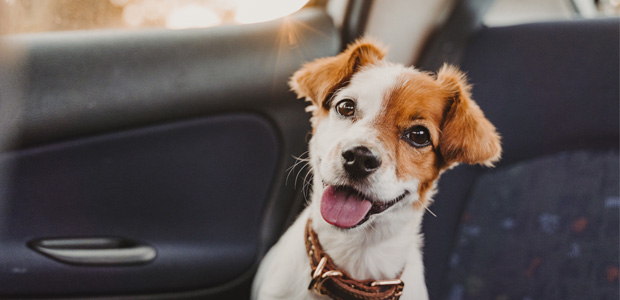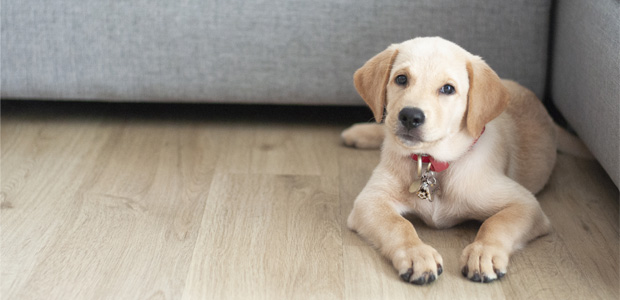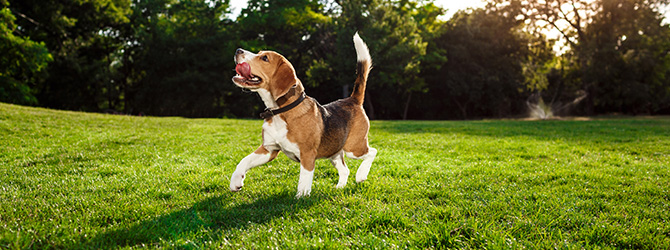How to prevent your dog from being stolen
Having their dog stolen is every owner’s worst nightmare - and rightly so.
While dog theft does occur, and owners should be aware of this, there are thankfully some measures you can take to drastically reduce your dog’s chances of being stolen.
Let’s take a closer look.
Dog theft: some shocking statistics
Research has shown that there were fewer incidents of dog theft last year (2019) than the year before.
Despite this, in 2019 an average of 6 dogs per day were reported stolen in England and Wales, with Staffordshire Bull Terriers, Chihuahuas and crossbreeds the most likely to be stolen.
Why do pet thefts occur?
Why would anybody even think about stealing a dog from their owner?
In most cases, dogs are stolen to be sold on or to be bred from. Although, as with most crimes, it depends on the motive of the criminal, the incident may be planned or it may simply be opportunistic.
Whether you’re out and about or you’re at home, there are plenty of long-term and immediate steps you can take to protect your dog from being stolen.
Safety and prevention out and about
Walks and outdoor adventures are one of the best things about owning a dog, but it’s important to be careful.
Does a stranger ask lots of questions about your dog?
If this is the case, you don’t necessarily need to jump to conclusions right away, but take care to secure your home once you get back. You can also avoid regular exposure to strangers by varying the time and location of your walks.
Keep them on lead when walking in unfamiliar places
If you’re walking your dog somewhere new and there are lots of trees and bushes they could easily get lost in, keep them on the lead until you reach an open area.
Avoid leaving your dog tied up outside shops
Ideally, walking your dog and visiting the local shops should be two separate ventures. Even if you live in a safe, quiet area, you never know when an opportunistic dog thief might come along.

Never leave your dog alone in the car
Not only does being alone in a car put your dog at risk of severe dehydration and even death, it also puts them at risk of being stolen. If you want to keep your dog safe, NEVER leave them alone in a car - with or without the window open.
Safety and prevention at home
Take lots of pictures of your dog
If the unthinkable does happen, it’s useful to have pictures of your dog readily available so you can add them to online forums or make posters.
Supervise your dog when they’re in the garden
This is especially important if you have a large garden or a low/unsecured fence. If this is the case, consider securing your garden so your dog can’t escape.
Make sure microchip details are up to date
It’s a legal requirement that all dogs in the UK should be microchipped. Make sure your personal information is up to date on microchip databases - if you change your phone number, move house etc - so that the staff are able to contact you if your dog goes missing and is handed in to a local vet practice.
Practise recall training
It’s always helpful to have your dog trained in the art of coming back to you when you call them.
Read more: How to… teach your dog to ‘Come here’.
Home security
If dog theft is common in your area, consider getting a home security system or an outdoor camera.
My dog is missing, what should I do?
Try not to panic, but do act quickly. Retrace your steps, and search for your dog thoroughly, whether at home or out on a walk.

If your dog doesn’t show up, try to inform as many people as you can that they’ve gone missing. Here’s a helpful checklist:
- Your local council
- Your neighbours
- Regular dog walkers in your local area
- The database with which your dog’s microchip is registered
- Your vet, and any other practices in the area
- Nearby animal rescue shelters
- The police
You can also try putting up posters, containing an accurate picture of your pet plus your contact details.
Finally, post on as many social media platforms and online forums as you can.
Need more info?
For more help and advice on keeping your dog safe, have a chat with your local vet.
Find a Vet near you today or speak to a vet online from the comfort of your own home using Online Vets.

